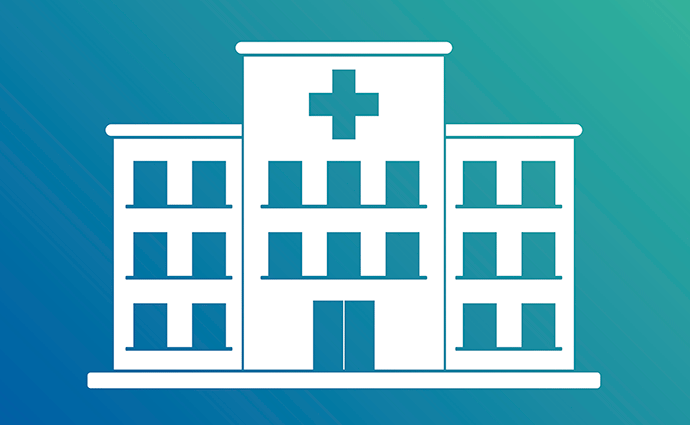Medicare Fee-for-Service Program Improperly Paid $41.1B
GAO found that infrastructural problems within the CMS Medicare Fee-for-Service Program led to billions of dollars in false payments.

Source: Thinkstock
- Due to problems with oversight and contract issues, the Medicare Fee-for-Service Program wrongly made payments of $41.1 billion in 2016, according to a GAO report.
Following an HHS report that initially found the inappropriate payments in the program, GAO noted that Medicare administrative contractors (MACs) conduct provider education to ensure fee-for-service payments. GAO observed and examined MAC operational procedures as the focus of its report.
MACs are a critical component in managing Medicare claims. These contractors process Medicare claims, identify vulnerable areas to improper billing, and develop general education efforts focused on these responsibilities.
CMS contracts out the MACs and cited that their provider education services are an important part of reducing improper payments.
CMS asked GAO to examine these educational services department and analyze the result of the services. GAO analyzed CMS and MAC documents as well as MAC provider educational data from 2013 to 2016.
READ MORE: How Medicare, Medicaid, and CHIP Guide the Health Payer Industry
GAO also interviewed CMS and MAC officials and assessed CMS’s oversight activities against federal internal control standards to support their examination.
The results of the final report found that CMS has limited oversight over MACs, thus resulting in billions of dollars in improper fee-for-service payments.
CMS collected limited information on how MACs identify vulnerable areas to improper billing.
Officials from CMS said that the agency does not require MACs to provide specifics on their provider education program for fear of being overly prescriptive and proscriptive on them.
Federal standards state that management within agencies like CMS should establish quality reporting information. Without proper MAC reporting, CMS cannot ensure the agency as a whole is improving vulnerable areas for improper payments said GAO.
READ MORE: Texas Wrongly Claimed $3.8M in Medicaid Reimbursements
CMS also does not require MACs to educate providers who refer patients for durable medical equipment (DME). DME includes the use of prosthetics, orthotics, and related supplies. MACs are not required to educate providers who refer their patients to a home health service.
Not only are MACs not required to educate this segment of providers, but they also do not have to provide educational guidelines on billing procedures for these types of medical equipment and services.
The reported $41.1 billion total comes from a notable lack of documentation for DME and programs related to home health services.
GAO noted that minimal education and documentation are very likely to continue improper billing and payment trends as well as a lack of adherence to federal regulation
“The absence of a requirement for MACs to educate referring providers about proper documentation for DME and home health claims is inconsistent with federal internal control standards, which state that in order to achieve an entity's objectives, management should assign responsibility and delegate authority,” GAO said.
READ MORE: Minn. Healthcare Payers Reported $687M in Financial Losses
“Without an explicit requirement from CMS to educate these referring providers, billing errors due to insufficient documentation may persist.”
The main focus of the MAC reviews throughout the analysis period included short-stay hospital and home health claims. Under probe and educate reviews, MACs reviewed a sample of claims from every provider and then offered individual education to reduce billing errors.
Even though CMS considered the reviews for short-stay hospitals a success based on anecdotal evidence, there was no way for CMS to see an objective improvement in performance because of a lack in quality metrics and performance benchmarks.
GAO reviewed the educational process and found that the percentage of these types of claims remained high after three rounds of provider education. GAO called on CMS to set performance metrics in order to relate educational efforts to improving billing.
Following the final results of the report, GAO summarized that a general lack of data and performance measures from CMS promoted ineffectiveness rather than proper billing procedures.
“The MACs’ provider education departments play an important role in reducing the rate of improper payments by educating Medicare providers on coverage and payment policies so that they can bill properly,” GAO said.
“However, CMS has missed opportunities to improve the effectiveness and its oversight of those efforts. CMS needs sufficient reporting from the MACs to determine if their provider education department efforts are focusing on areas vulnerable to improper billing.”
GAO concluded the report with three recommendations to be carried out by HHS and CMS.
The first of the recommendations is for CMS to establish sufficient reporting detail in MAC reporting so CMS can provide proper oversight on the most vulnerable areas to improper billing.
Secondly, GAO recommends that CMS should explicitly require that DME, home health services, and related MACs work together to educate related providers on documentation requirements for these care services.
Finally, CMS needs to establish the proper performance metrics to ensure that the MACs are actually effective in reducing improper billing.
